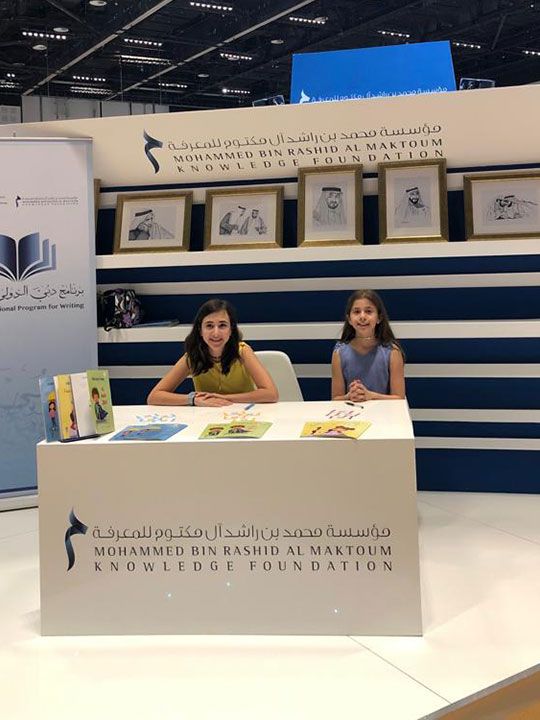According to the United Nations Educational, Scientific and Cultural Organization’s (UNESCO) Atlas of Endangered Languages, 228 languages are extinct. The Hajjiri family is determined to keep Arabic far, far away from this list.
Jumana, a mother of three, remembers the annoyance she felt speaking to her children in her mother tongue; they would stumble over the words. “My children themselves weren’t very strong in Arabic. So we had this problem at the national level. The fact is, you know, our children are in international schools. And sometimes their mother tongue becomes the second So the idea was to highlight the importance of speaking your mother tongue and speaking it fluently,” says the Dubai-based expat.
“So I tried, we tried so hard to reinforce the slide in the language. We have now reached the point where we can spread the learning among the other children to tell them yes, you can start, to take steps from baby. By the end, you’ll be fluent,” she says.
When she discussed the matter with her children, the idea of writing books that use stories to teach words and lessons appealed to them. And so the “Journal of the Three Brothers and Sisters” was born.

Sara and Lene
Image Credit: Supplied
“We made cartoons of the characters based on my children and the stories are very real. These are our daily memories. That’s what makes it really relevant,” she explains.
Together with her daughters, Sara, 13, and Leen, 14, Jumana creates storybooks that speak to cherished human values such as kindness and a sense of humor. (The third sibling, Zaid, is six years old and under peer review.)
How do they do?
Jumana explains: “We sit together, we think. I do the writing, but I always consult them on the ideas, the sequence of events, the illustrations, the paper they’re printed on…everything.
Sara describes the writing process as one that takes place at the dining table. “We usually sit around the kitchen table and usually have snacks and just talk about the times we enjoyed as a family. So a lot of what you see in the books is actually what happened before. So we’re talking about how we can put that in a book and have the kids kind of take a lesson from it and get a moral from the story. The result is usually laughs and a story to tell.
Before going to the printers, this story will be checked once more – by going through a group of children whose age matches the target audience. (The four books that are aimed at children ages 5 to 12.)
The family also organizes workshops, helped by the stories. The books are in two parts; an illustrated story and activities to reinforce learning, including one that calls for a letter of gratitude. “At the end of each story, we ask the children to write a letter of gratitude for someone in their life who carries the value of the story,” says Jumana. “We had very touching letters, I cry sometimes.”
Leen remembers the time someone bought the first copy of the first book. “It was a dad getting it for his young daughter who was trying to learn Arabic. I love it because it shows us how it makes people’s lives better,” she says.
For Sara, the best thing about the show is the quality time she gets to spend with her family. “I appreciate the quality time we spend together, coming up with ideas and writing stories,” she says.
So far, four books in “The Three Siblings’ Diary” series have been published by the Mohammed bin Rashid Al Maktoum Knowledge Foundation and two more are in the works. For now, the Hajjiri family is taking their stories to literature festivals, including the Emirates Literature Fest, and in the process gathering more fodder for their stories.
Do you have a story to share? Email us at parenting@gulfnews.com
